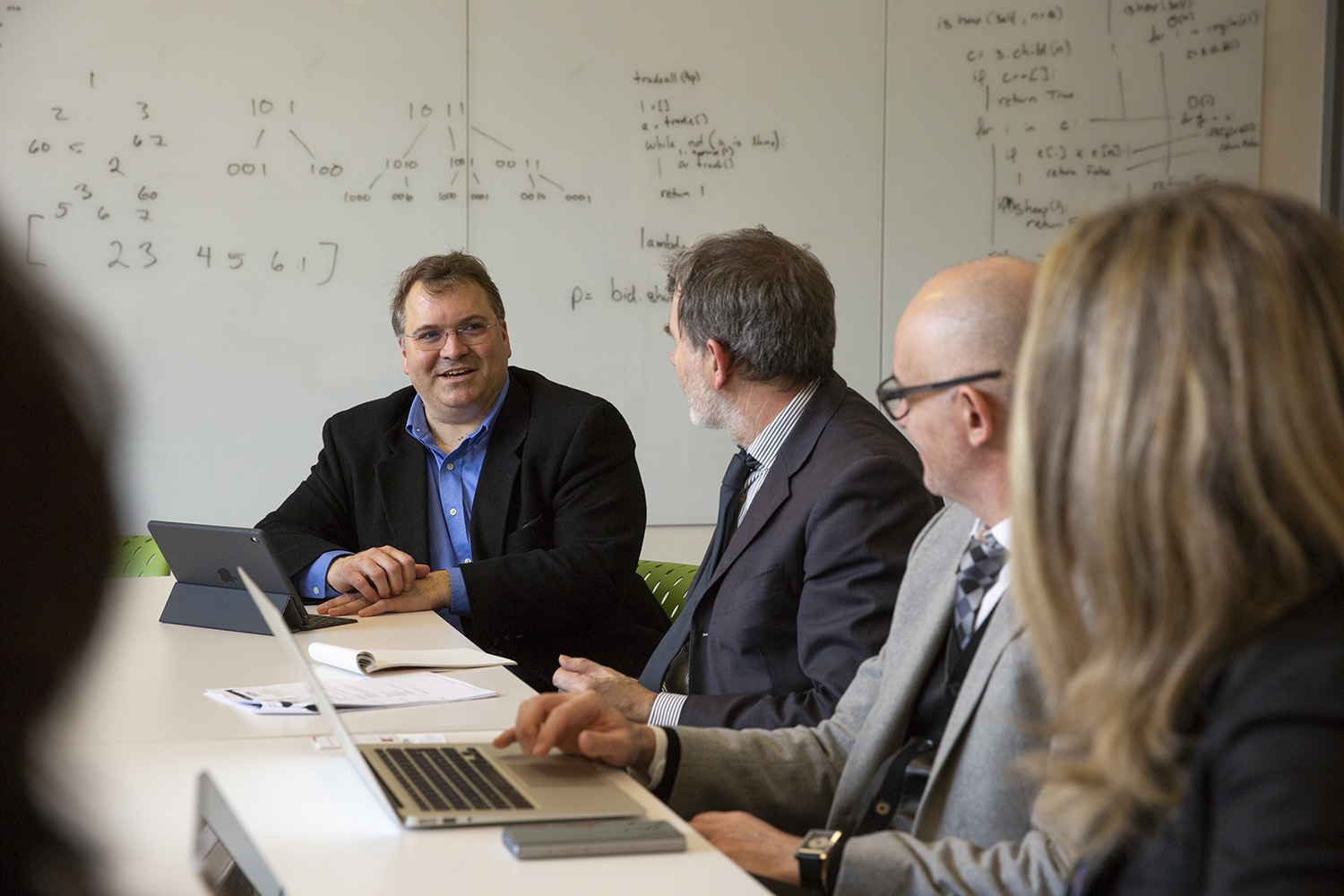A partnership between the College of Liberal Arts and Sciences’ Department of Literatures, Cultures, and Languages and the School of Engineering has culminated in the launch of UConn’s new International Engineering Program. This series of dual-degree programs give undergraduates pursuing engineering careers the chance to go abroad to pursue international internships in a setting of total cultural immersion.
The program comprises four five-year programs that give students the ability to earn a BA in Chinese, French, German, or Spanish, and a BS in an engineering discipline.
By adding an entire year abroad and total immersion in a foreign language and culture, the program graduates young engineers with hands-on global experience who are prepared for rewarding careers in a diverse array of fields around the world, says program co-director and Associate Professor of Literatures, Cultures, and Languages Jennifer Terni.
“It really is a very organic program that prepares students at the highest levels professionally, and at the same time gives them a real-world stake in mastering another language and culture,” she says.
Terni co-directs the International Engineering Program with Brian Schwarz, director of experiential engineering education initiatives in the School of Engineering.
The initiative builds on the 25 years of success of the Eurotech program, which places UConn undergraduates at universities and internships in Baden-Württemberg, Germany.

The newest program, called Technopole France, launched this year as an exchange with the University of Toulouse, France. The home of aerospace manufacturing giant Airbus, Toulouse produces more engineers than anywhere else in France, and is akin in its concentration of researchers, universities, and technologies to a Silicon Valley of Europe, says Terni. The program includes two internship positions at Airbus each year.
“We’re looking here at the creation of business exchanges – this is how UConn is creating economic value for the state and the nation,” says Terni. “We’ve gone from having four relatively small niche programs into one large International Engineering Program that we are building into a destination program for UConn.”
A delegation of administrators and researchers from the University of Toulouse visited UConn in April, meeting with CLAS Dean Davita Silfen Glasberg and engineering Dean Kazem Kazerounian, along with Provost Craig Kennedy and other University leaders. The group also met with students in the Eurotech program to learn how it has shaped their college experience.
Liam Connelly ’21 (CLAS, ENG), one of the first participants in Technopole France, says he was interested in the program from early in his first year.
“I always wanted to be an engineer, and I also want to be able to travel and be an asset to a company,” he says. “Toulouse is situated really well – it’s a city full of young people, and a center for engineering startups. It’s a goal I can set for myself, to expand my worldview.”
The Engineering Spanish Program, or ESP, sends its 40 students to Valencia, Spain, and emphasizes biological engineering disciplines, such as biomechanics and biomedical engineering. Students can begin their studies at Comillas Pontificia University in Madrid during their second year, and visit the Polytechnic University of Valencia.
“Valencia is a leader in cutting-edge biomedical research, like concussions from sports, and designing headgear for soccer players,” notes Schwarz.
The newly-established AsiaTech program gives students the chance to study in Shanghai, China, and emphasizes mechanical, materials, electrical, and chemical engineering, and computer science. The study of upper-level Chinese makes this a rigorous program, says Terni, which in itself makes students better engineers.
“These students are learning to think in another language,” she says. “When you marry the cultural experience with engineering training, students become better engineers because they learn to think outside the box on a daily basis.”
Terni is capitalizing on the literatures, cultures, and languages department’s many relationships with Connecticut high schools to get the word out so students can “start on day one of their college experience,” she says.
Students shouldn’t be dissuaded if they’ve never taken the language, she also notes. Connelly, who studied Spanish in high school, took his first French class at UConn, and is on track to have a command of the language before he travels to Toulouse between his junior and senior years.
“It’s bigger than just getting two degrees,” says Connelly. “It’s part of something much bigger that expands your worldview completely.”



